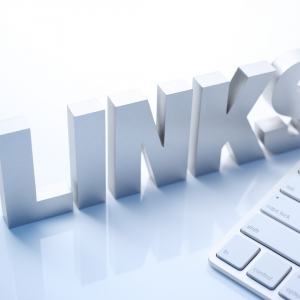
Internal and external links in SEO can be considered the pulse of the internet as they help in connecting every content bit with the next. Search engines can help in using both external and internal links in determining where and which exact pages offer the most relevant content to each subject. Hence internal and external links assume an extremely important role in the SEO of your website. Let us explore why internal and external links in SEO matter and how they can help you in creating a more enriching customer experience:

Why Should You Use Internal Links in Your Website?
Internal links are incorporated by Google and various search engines to help you in understanding the overall structure of your website. Internal links empower the website owners in helping their visitors and different search engines figure out which web pages and what content is the most important.
Search engine spiders crawl all the links present within a website to specify its structure, and the pages that are around the top of the hierarchy are considered to be more important naturally. As a website owner, chances are that you would want your target audience to focus on the most important content and you would not want it to be lost deep within the website.
Why Should You Use External Links in Your Website?
Google and different search engines place a lot of importance on links. If you can link your website to an external website, the search engine crawling your links would consider this as an endorsement by the external website for your content. You can use external links to offer your readers context, provide information verification from various sources, or cite the content on your website.
Also, Google’s modus operandi can deliver the right content tailored to suitable people at the proper time. Sometimes it makes a lot of sense to link wherever your answers link and you can just link to the correct information with external links. If you think that your target audience can benefit from specific pieces of content, you should link them to your website.
How, When, and Where Should You Add These Links?
When you want to add existing and new links to the current content on your website, a good place to start is by looking at it from the perspective of your target audience. Consider how your target audience would like to engage with your content and where can a link help them stay engaged. You should always take some time to map out your specific customer journey. Make sure that you incorporate some clear CTAs or call to action in your website content. In addition to adding internal and external links to SEO, you also need to ensure that call to action buttons are added around your website to encourage your visitors to engage with your products and services.
Business-Tier Freelancers
These days customer journeys are simply not linear. You need to ensure that you offer options based on where your consumers are, how they look for answers, services, or products, and how you need to use internal and external links in SEO.
By connecting to content that can offer relevant answers to your questions using the anchor text, and actual keywords that you offer to your search engines using an essential signal to help you in tieing up all the various questions and answers from different sources.
The most prominent calls to action and links that you use on your website can be tied to an image, button, or banner, automatically and placed strategically to get your website visitors to engage. Data acquired from tools can help you in informing and optimizing your continuous internal and external links strategy.
Open Your Links in a New Tab or Window
When you use external links on your website, you should consider linking them to content or a webpage that opens in a new tab or window.
This way, when your reader has already navigated to the “interconnected” content. This means that they could close the second easily once they are done reading and go back to the original article or website and stay on their journey engaging with your website.
Decide if You Will Add Follow or Nofollow to Your Links
As a website manager, when you add links to your website, you can choose if you wish to designate your links as Nofollow or Follow. You just need to tag your link with
Conclusion
Internal and external links in SEO can play a significant role in your digital marketing strategy. They can guide the visitors of your website to specific answers when they look for your services and products. Every link that you have needs to lead your target audience to relevant content on your website and help in continuing your customer journey and information gathering.

Started working as a digital marketing expert, Varun Sharma is now also a well-known digital marketing speaker – a speaker on performance development, and a trusted mentor to businesses in the digital world. His keynote expositions are based on the digital marketing theories, which provide a fascinating insight into the secrets of high performance.

